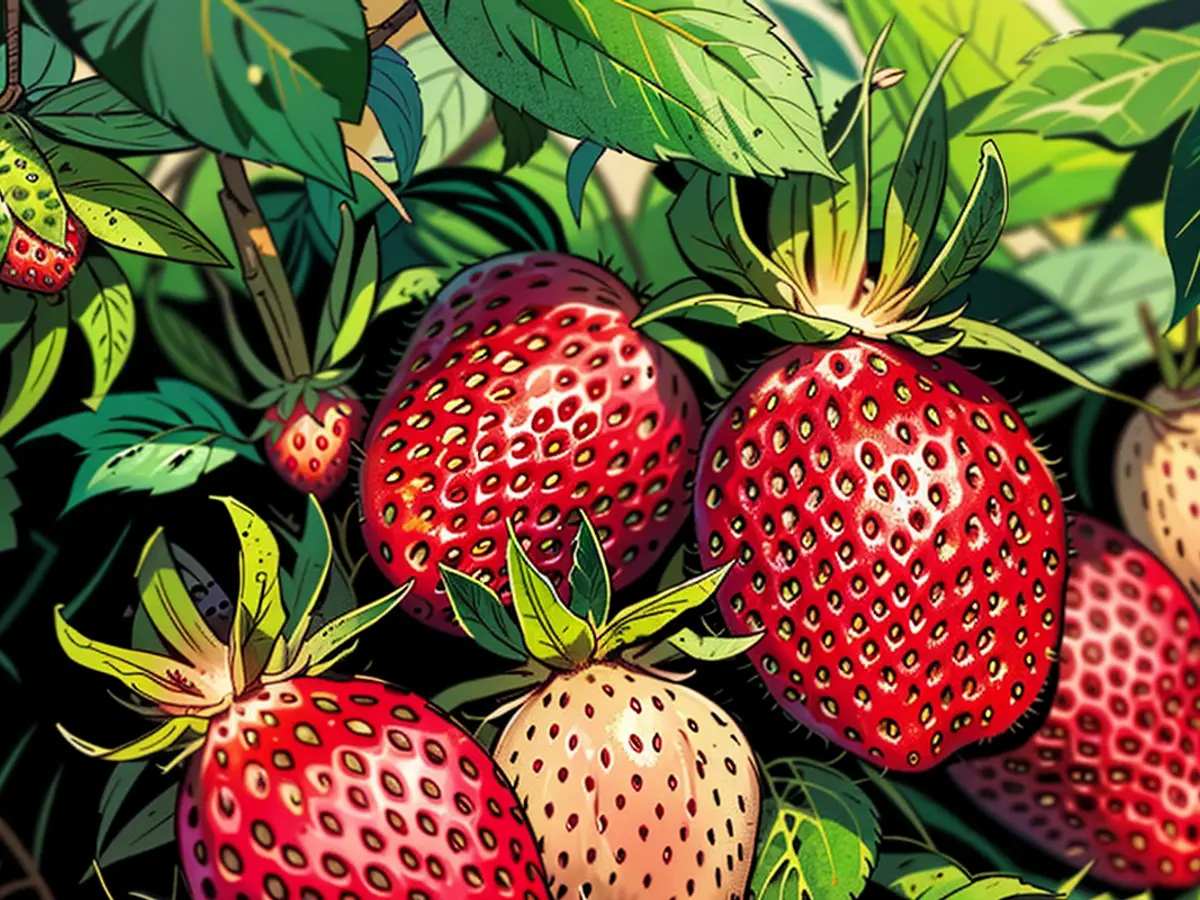Drenched countryside - Grains like maize, sugar beet and potatoes will be planted at a later time.
Drenched agricultural fields are causing some trouble for local farmers. Currently, the damp conditions are making it harder for them to fertilize and tend to their cereal crops, according to the Chamber of Agriculture in Münster. There's a wide range of varying growth stages due to the different sowing times for winter cereals in the fall.
Corn and sugar beet planting, as well as potato planting, have both been delayed because of difficult road conditions for larger vehicles. The last corn fields were planted in early June, says the Chamber. "We're still waiting to see how the earlier harvest will affect the yield." In addition, in May, heavy rain or hailwreaked havoc on young beet plants in the Rhineland and Lower Rhine regions.
Fruit and vegetable farmers are also feeling the rain's impact. Since the fields are currently inaccessible, work is being delayed -- be it planting or maintenance. With the humid, warm weather, the risk of fungal diseases is high. "Despite this, Rhineland fruit and vegetable growers are relieved that they've managed to avoid any severe flooding so far," said a spokesperson.
The relentless rainfall is also causing problems for strawberry growers. While it's caused issues with rotting fruit in many parts, it's also given good irrigation to help nurture large berries that can be harvested. "We have plenty of strawberries of great quality," said Karl Schulze Welberg, a consultant for the Chamber of Agriculture in Münster. June is the prime harvesting season for this well-loved fruit, and it lasts for various varieties and cultivation styles, sometimes extending all the way through autumn.
In recent years, the practice of growing strawberries in protected environments has become more common: Under plastic, these delicate fruits are sheltered from rain. "Some strawberry growers are also offering a self-picking experience in the greenhouse," reported Schulze Welberg. The traditional approach of picking outside is also being enjoyed. There are over 350 strawberry farms in North Rhine-Westphalia.
Read also:
The delay in planting corn and sugar beet, as well as potatoes, is due to the challenging road conditions for larger vehicles in the drenched fields of North Rhine-Westphalia. Farmers are closely monitoring the impact of the earlier harvest on the yield of cereal crops. Despite the difficulties, fruit and vegetable growers in the Rhineland and Lower Rhine regions have managed to avoid severe flooding so far. The relentless rainfall has benefited strawberry farms, promoting the growth of large berries that can be harvested in June. Due to the practice of growing strawberries in protected environments under plastic, some farmers are offering a self-picking experience in greenhouses, while others continue with the traditional approach.








